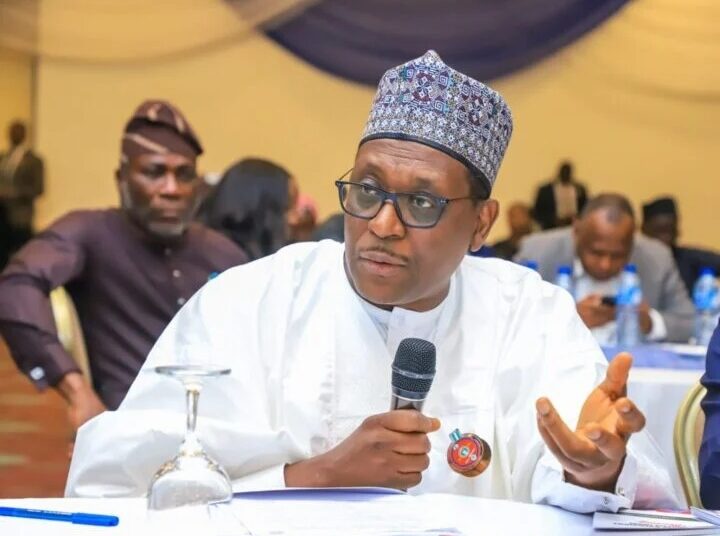The Coordinating Minister of Health and Social Welfare, Professor Muhammad Ali Pate, has reaffirmed the federal government’s commitment to strengthening Nigeria’s health security system, emphasising prevention, preparedness, and collaboration as key to building a resilient health sector.
Prof. Pate made this known on Monday while speaking at the 10th Anniversary Celebration of the Dr. Ameyo Stella Adadevoh (DRASA) Health Trust in Abuja.
Represented by the Director of Port Health Services, Nse Akpan, the minister described the late Dr. Ameyo Stella Adadevoh, who sacrificed her life to contain the 2014 Ebola outbreak in Nigeria, as a national heroine whose courage and professionalism saved millions of lives.
“We remember with profound respect Dr. Adadevoh, whose courageous and decisive action protected millions of Nigerians. Her sacrifice embodies the highest ideals of medical professionalism and national service,” Prof. Pate said.
“Today, through DRASA’s work, her legacy lives on as a living movement for disease prevention and health security,” he added.
The Minister commended DRASA for its decade-long partnership with the federal government in strengthening infection prevention and control (IPC), antimicrobial resistance (AMR) response, and public health capacity at both the national and community levels.
He noted that through DRASA’s support, Nigeria successfully developed its Second One Health AMR National Action Plan and trained over 16,000 health workers in infection prevention and control. He further highlighted DRASA’s success in mobilising nearly 100,000 Health Champions across schools, communities, and health facilities, an approach he said demonstrates the power of grassroots involvement in public health.
Prof. Pate stressed the importance of sustained investment in preparedness and prevention, warning that the world too often waits for crises before acting.
“Every naira spent on infection prevention, hygiene, and antimicrobial resistance control saves many more in treatment and economic loss. The rising trend of drug-resistant infections is a silent pandemic — one we must confront with urgency,” he said.
Speaking further, he outlined the government’s priorities under the National Health Sector Renewal Investment Initiative (NHSRII) and the Sector-Wide Approach (SWAp), both aimed at unifying health sector efforts, improving primary healthcare, expanding the health workforce, boosting local pharmaceutical production, and strengthening emergency preparedness.
The Minister called for an all-of-society approach to health security, noting that prevention and preparedness cannot be achieved by the Ministry of Health alone.
“Health security demands active participation across all sectors; finance, environment, education, private sector, and the media — as well as from communities and youth who are often the first to detect and respond to health threats,” he said.
Managing Director of DRASA Health Trust, Niniola Williams, expressed gratitude for the government’s support and reiterated DRASA’s commitment to advancing Dr. Adadevoh’s legacy through innovation and partnership.
She revealed plans to establish a DRASA Academy that will train 50,000 additional health workers in infection control and integrate AMR education into all secondary schools across Nigeria.





